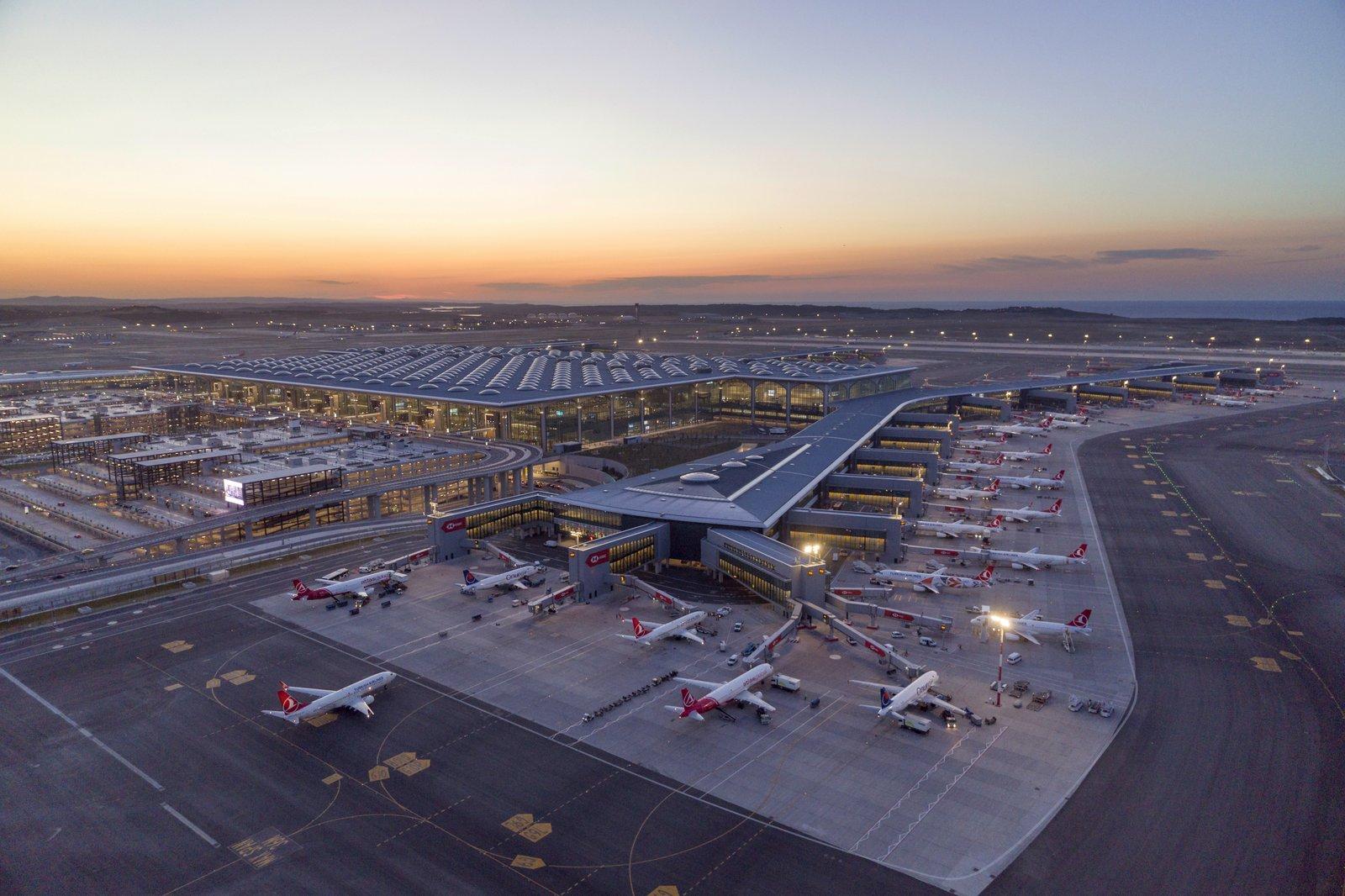
How is the current situation at IST and Turkey in general?
Overall, it's very sad that the airports in Europe went all the way back to the traffic levels in 1995. This is astonishing. We lost almost 25 years like we put ourselves in a time machine and went back to 1995.
When the pandemic started it was our second year of operation with over 23 million passengers. We proved to be one of the most resilient airports in the continent and the busiest as well in terms of passenger numbers.
There are reasons for this resilience. We have a very strong and large domestic market and our government put relatively limited travel restrictions and border closures which enables us to surpass the other big hubs in Europe.
Of course, it's a pandemic and as a global hub airport we should work very closely with the government officials, health professionals and airlines to safely handle the pandemic and to keep the air connectivity to Istanbul and Turkey.
We need to reduce the economic impact of the pandemic on us and also in the sector. That's why working with the stakeholders and decision makers, as well as airlines and other stakeholders in the ecosystem, is very key to set measures and reduce the health risks for the passengers and for our employees
In the first year of the pandemic we successfully implemented those measures in Turkey, as a result of which we currently have a consistent and predictable travel experience that we can propose to the passengers and tourists who are willing to come to Istanbul this year.
I will call 2021 as a year of partial normalization. It's unfortunate but I'll be very glad if we get the air traffic to around a 50% contraction compared to 2019 and from our operational perspective, the year started very much in line with our expectations.
How important is restoring the leisure markets during 2021?
Turkey is the sixth biggest touristic country in the world. Tourism is one of our main foreign currency inflows along with the service economy.
Therefore, the recovery is very important for the Turkish aviation industry, as well as the tourism industry. In our country and I think all around the world, we should avoid the disruption that we experienced last year and increase transparency and predictability for passengers as well as businesses.
When we have all these problems hanging in the air, our hands will remain tied and we will continuously go through tough times when the blanket traveling bans are still imposed.
What we need for Turkey and for all the big touristic destinations, and also for the continent, is a progressive and coordinated restart of international travel for summer 2021.
There are good signs that encourage us for the coming months. One of them is the United Kingdom's recent move to work on a coordinated restart of international travel. I hope other countries will follow the UK's footsteps.
The evidence from Israel is basically demonstrating that the vaccines are effective against the transmission. That’s also positive and obviously there's significant pent-up demand.
You know last summer when the restrictions loosen a bit, we saw a huge movement all around Europe and as well as in tourist locations like Turkey.
Of course, while 2021 is a year for normalization, I think the recovery will take longer. Restoring passenger confidence through progress on vaccination is key. Testing and also health precautions should remain very strong for airports and for airlines.
If global economic growth occurs, people will have more disposable income to spend on traveling.
Airline capacity ramp up is an issue. We have over 15,000 aircraft grounded at the airports; we should definitely plan how to ramp up this capacity back to business.
Which markets are most important for you to re-open?
Our flagship carrier Turkish Airline is our priority one partner and they're providing almost 78% of our traffic.
We are working closely with them in terms of opening our businesses and we should also follow their tariff and route opening plan for us.
What we see is around Turkey, key markets such as Russia and the CIS are showing significant demand to Turkey because they are facing serious visa requirements to travel to Europe.
This group is a huge potential for Turkey in the last quarter of 2026, new airlines from Russia start flying to Turkey. This is very encouraging and we see a similar trend in Ukraine.
Of course, Asia is also a pretty important market where the growth is very strong. We see the recovery in Asia is much better than our continent and that's why we will definitely continue focusing on building more relations with the Asian carriers.
The Middle Eastern market is also very, very close to Turkey and we are an automatic tourism destination for most of the people living in the Middle East.
I hope that when mass traveling becomes more possible and the restrictions are lifted we will see a significant recovery from the Middle East.
Do you see a more diverse airline mix at IST in the future with these changing dynamics?
In the past there were many airlines who wanted to fly to Istanbul. Due to the capacity constraints of the old airport they were not able to obtain the slot rights at the right time, around the peak hours of the day. That's why we lost a lot of business to other airports.
Today our airport has no problem in any capacity on the air side or on the land side. That's why we are welcoming almost all airlines commencing services to Istanbul.
The importance of Istanbul is that we have around 16 countries within two hours’ flight time. We can easily be a mega hub operation for those 16 countries located in our catchment area. What we are proposing to them is that they can come to Istanbul with narrowbody aircraft.
Then we can mix them up with interlining or having codesharing or other arrangements with Turkish Airlines and transferring their passengers to final destinations.
This is important because small regional airports are going to recover a bit later than big hub airports like us. Opening a direct route from one destination to the rest of the world doesn’t make sense economically. Only through Istanbul can we offer to many new airlines located in our catchment area, reaching over 200 destinations with just one stop.
I think that's a good proposition and we are pushing that a lot with new airlines, as well as the existing airlines as an idea to entertain.
If this idea flies we will be able to help those regional airports and also the regional airlines grow their indirect market through Istanbul.
To do that Turkish Airlines is key and we are working with them to develop this full potential together. It's a long process, it's a tiring process, but we are very hopeful that we can put in a proposition which will have a win-win for Turkish Airlines and all other airlines at the same time.
Photo credits: Istanbul Airport
